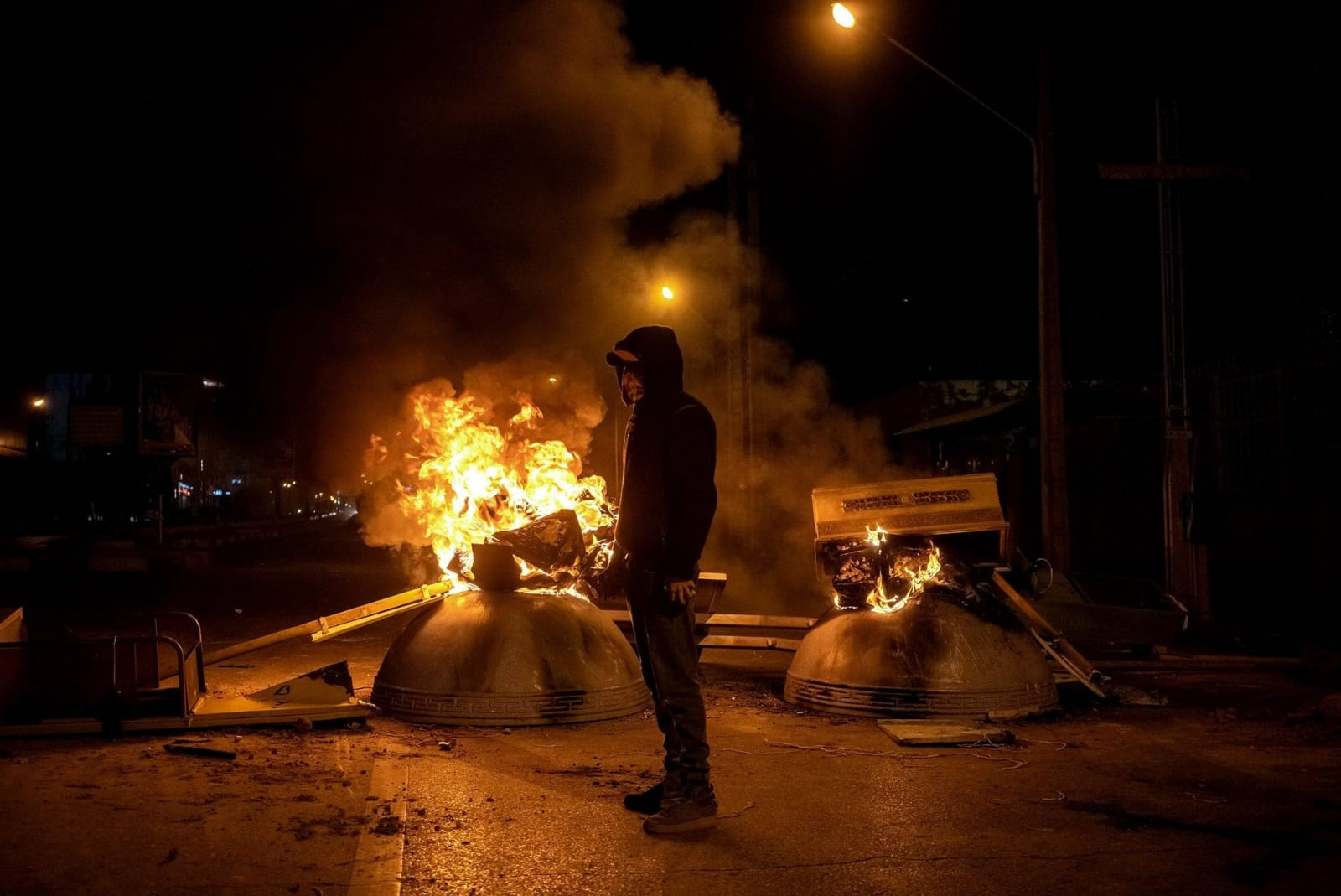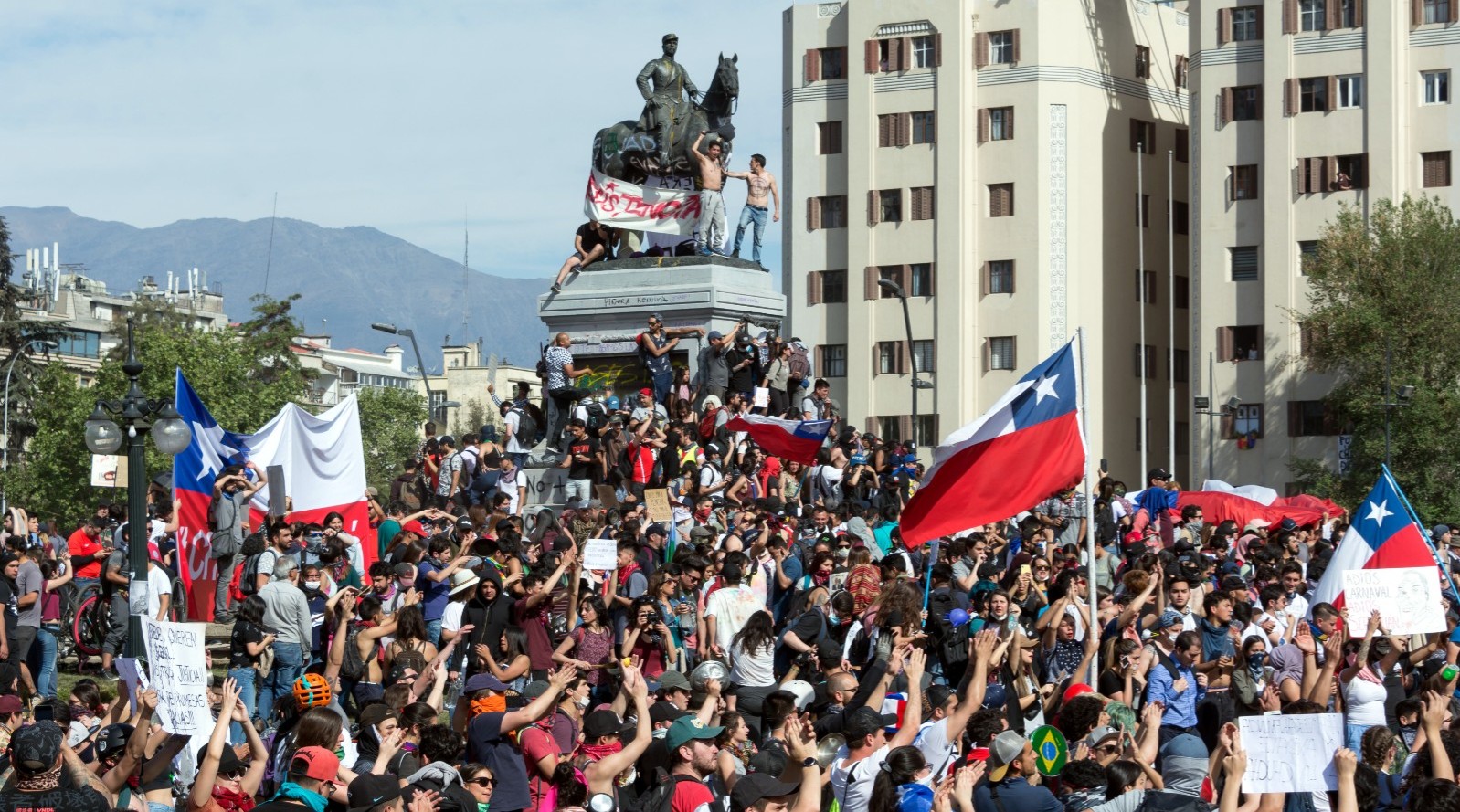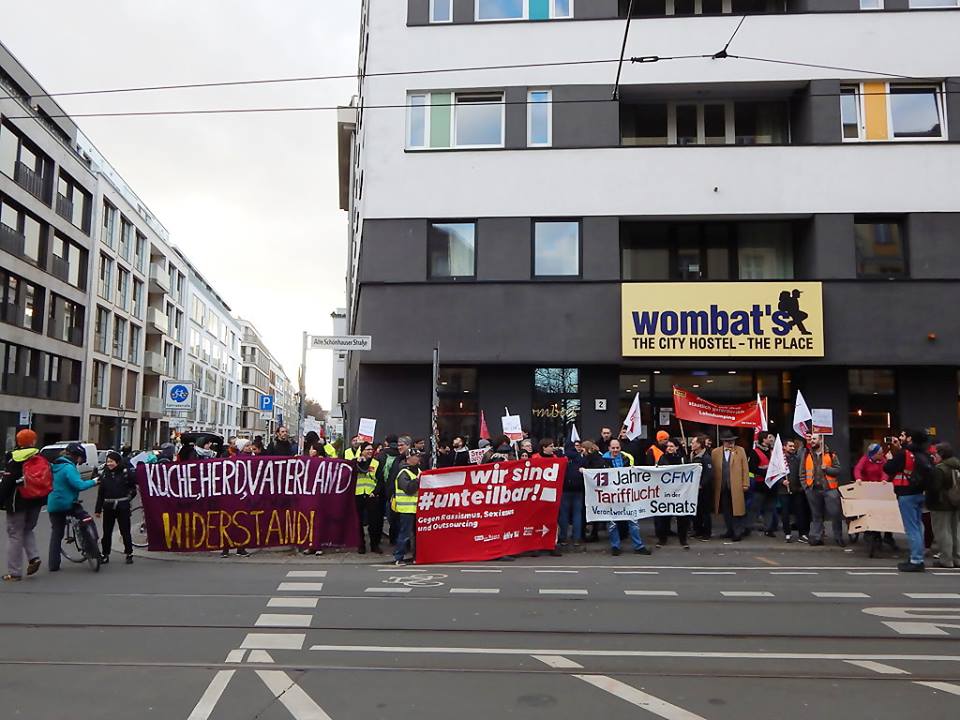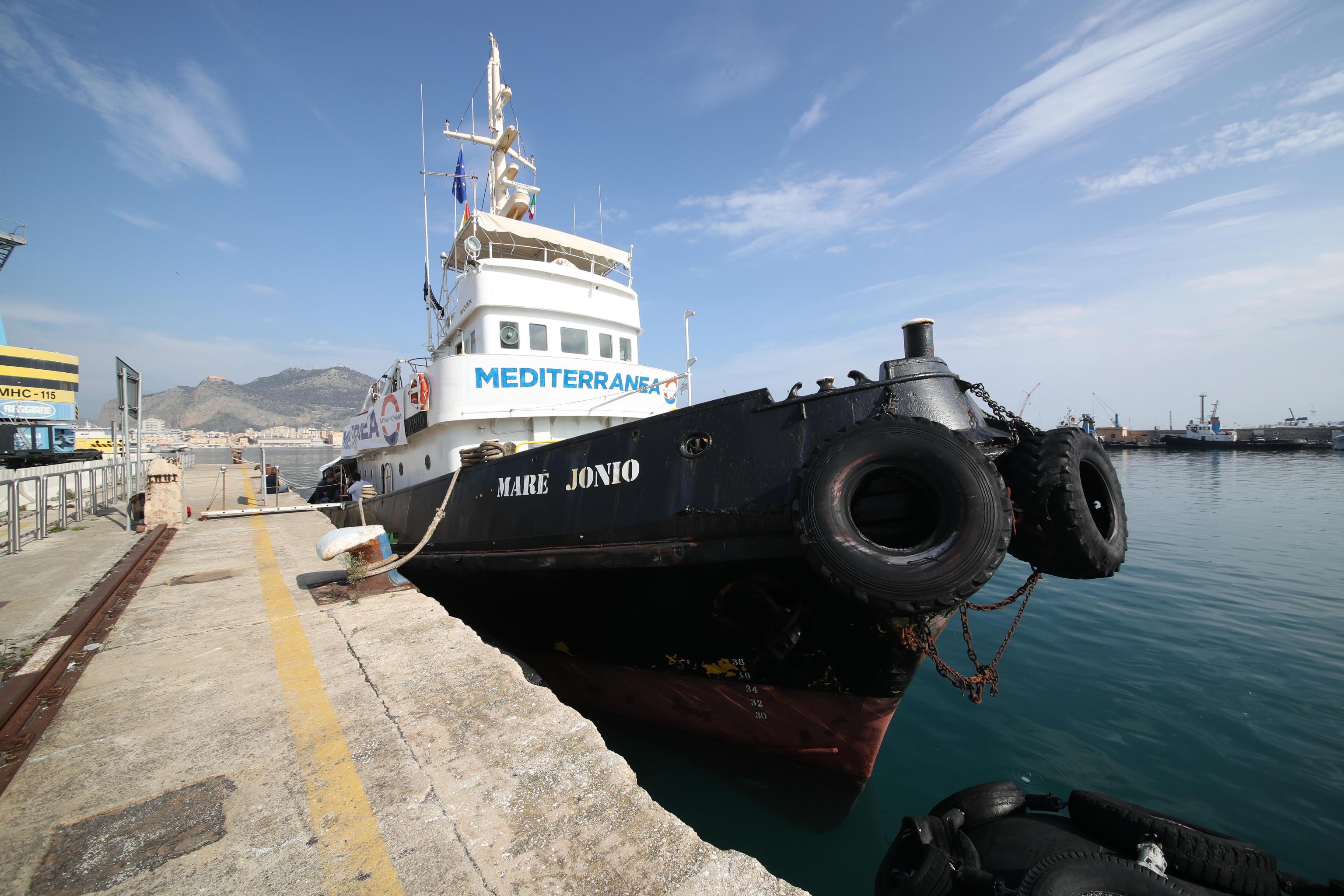Introduction by the TSS PLATFORM
This reader collects texts written by workers, activists and trade union members from several European countries, who took part in the discussions promoted by the Transnational Social Strike Platform around the issue of logistics. Since the beginning, as TSS platform we recognised that logistics poses an unavoidable political challenge to any movement aiming to overturn the present conditions of exploitation. Rather than just referring to infrastructures, transportation and delivery, logistics can be described as the underlying logic of today’s capitalism and one of the leading forces behind the ongoing restructuring of production, political spaces – states, cities and metropolis – and social relations. Its specific relevance lies in the constant work of fragmenting and stretching the different knots of the chains of production and reproduction, in order to dispose them according to the exclusive needs of a transnational valorisation and to produce the conditions of a complete disposability of workers’ time and life. Logistics thus includes a complex and multifarious set of technical tools, standards, protocols, organising principles, institutional structures and legal conditions that materially and politically affect the way in which capital attempts to command social cooperation and to govern living labour. The articles collected in this reader and its introduction underline different aspects of logistics which, taken together, show its specific and nonetheless general political dimension.
Logistics constantly builds an imaginary of efficiency and smoothness by hiding the reality of precarious labour
Actions against logistics have risen to prominence in recent years. From ports to warehouses, from factories forming global supply chains to companies of the so called ‘gig economy’, from environmental issues to movements against infrastructural projects, all over the globe we observe a surge of struggles that have a direct relation with the impact of logistics. These struggles and the different forms of strikes they have been able to ignite shed light on a world of labour relations that for some time has been considered by social movements as outmoded and politically residual. They also demonstrate that the pervasiveness of logistics goes well beyond a specific sector, and beyond the realm of circulation. What is clear to us is the need to make our understanding of logistics more complex in order to question some easy presumptions and clear-cut distinctions, such as the one between circulation and production, precarious and regular workers, material and immaterial production, political and economic dimensions, the local and the global, labour and social struggles. These distinctions, used by logistics and its boosters to hide the reality of exploitation, are too often blindly accepted even by those who aim at organising against it.
The imaginary of efficiency, smoothness and technological necessity connected to the so called “logistics revolution” is only part of the story: to struggle in and against this world implies the task of unveiling the conditions lying behind this supposedly technical logistical transformation, bringing to light what logistics systematically makes invisible. As an overall transformation of the command over labour and life, logistics is the other face of precarity – as a condition that has become general, but that logistics itself contributes to hide. As a matter of fact, a selective visibility is a core feature of logistics: while digital technologies are used to trace, track and command workers’ performances, a typical characteristics of global supply chains is the capacity to exploit informal labour, which is not registered in companies’ charts and labourcontracts, and to hide the responsibility of employers through subcontracting and outsourcing. What logistics makes visible is just the surface of the deeper political and social phenomenon of the forced and violent dependency on wage and income: special economic zones and warehouses, software and algorithm do not point to any “end of labour” – ironically upheld by both the employers and some critics of capitalism – but are rather a way of intensifying exploitation and continually reproducing workers’ full disposability.
It’s here that we can observe how the different dimensions of labour collide and conflate. The sense of a merciless digitalisation of life is the other side of the image of smoothness and ubiquity of deliveries. While interoperability and multimodality have been used to sell the logistical fantasies of a seamless and hyper-connected world of lean production, the celebration of 4.0 or “smart” production is the whip unleashed against all workers to force them to accept the worsening of their working conditions. What we face is then a complex differentiation of conditions in which digitalisation and technologies concur to put more pressure over workers in sectors as different as factories, warehouses, public services, farmlands, universities or delivery. Digitalisation means for all, and at a higher speed, the shift of power and command towards the competitive logic of global capital and the generalisation of precarity. As a consequence, the fragmentation and indefinite extension of the work-day, the harsher intensification of the work-time through the imposition of performance indicators and other measurement techniques increasingly camouflage command and affect all jobs and positions, including the ones once considered “safe”.
As the struggles across logistics show, however, the harshness of this command can be concretely weakened by turning fragmentation into connection, by making the struggle itself the condition of a political communication which is based on the shared urgency of taking back the control over time, and refusing the complete disposability that logistics’ rationality claims and constantly tries to impose. In light of this we cannot think that our capacity of turning logistic against itself is only a technical question. If logistics is not a sector, if it is not just a matter of technology, if it is rather the pivot around which the global reorganisation of neoliberalism is centred, then our own political infrastructure should be able to address and attack the entire set of conditions of this very reorganisation.
Any struggle in and against logistics must be conceived and enacted on a transnational scale
The struggles related to logistics demonstrate that the only thing that has been actually shared across the globe is the enmeshing of every national or local condition inside a matrix of infrastructures, communications, production chains, algorithms, financial exchanges and mobility of labour and capital. By stating the need to set our political initiative on the transnational scale, we are not celebrating the global as such. We are rather registering the inadequacy of closed scales of understanding and organising to confront a capital which is global. For this reason, we see in the transnational dimension an unavoidable challenge and opportunity.
When local gains can translate in losses for others, the exercise of tracing back the whole supply chain becomes a necessary step. Yet, beyond this it’s important to recognize that, while connecting, logistics fragments and creates divisions through the cooperation of a plethora of actors, including local, national and supranational institutions, in order to enhance its control over living labour. The question is not simply to understand how production and circulation are organised on a transnational scale, but how the logic of logistics structures the whole management and command of living labour, within and without the workplaces. This surely requires organising across borders, but also something more: it requires building political connections that are able to address and overturn the political conditions through which this very fragmentation is produced and reproduced.
From this perspective, the migrant condition helps highlight the pervasiveness of the logicof logistics. Migrants are not only highly employed in logistical hubs as precarised and informal labour: they are also those whose mobility is being handled through a “logistical rationality” which aims at regulating, selecting, organising their movements towards and inside Europe. Seen from the viewpoint of migrants, logistics is a set of power relations implemented by firms, corporations, states and public and private agencies. To be established, the logistical command needs political means such as the nation-states and their control over the movements of living labour through the blackmail of precarious residence permits and a restricted access to welfare services. The violence of the border regime is another dimension of the fragmentation that is needed to bring about the availability to capital’s needs and weaken the potential of insubordination. But while migrants allow to show the political dimension of logistics, they are also protagonists of a powerful movement which is everyday challenging the logistical rationality by striking the borders. Migrants show that the project of confronting logistics and the need to organise transnationally is one and the same.
Different texts in this reader suggest that a better cooperation and coordination between labour actions enacted by unionised workers and support from other parts of society can produce not only a higher leverage for workers’ demands,but also open the possibility for a wider politicisation of both terrains of struggle. What we suggest is the need to look at the same time at the fault linesand weak points of logistical organisation, in order to create and expand the glitches in the system, and at the political, social and institutional conditions that at once enable and are shaped by it. It is at this level that it becomes clear how the transnational extension of supplychains, infrastructure and e-platforms is not just an operational adjustment in the search forbetter conditions, but a force that shakes and rescales the political spaces where we act,transforming states and cities and reconfiguring metropolitan spaces.
The aim is to combine the capacity to materially hit in specific points and to attack the social and political conditions of reproduction of capital
Our aim, therefore, is not simply that of realising a counter-logistics as a technical reversal of the logistics of capital, but to understand our opposition within an overall set of social conditions that are constantly challenged by everyday social struggles and strikes. We need to develop a practical knowledge which draws both on the analysis of the ubiquitous functioning of the logistics infrastructure, and on the manifold experiences of insubordination, pushing them beyond their limits. Our aim must be that of creating the conditions for a political communication that is actually able to counteract logistics as fragmentation and domination. While logistics presents itself with the face of concentrated knots such as ports, land ports or data centres, its reality is a dispersed and resilient form of power which valorises and reproduces unbalances and specific conditions of exploitation. While logistics celebrates a corporate world with selective borders, what we need is to produce a transnational political communication by raising demands that resonate with the continuous mobility of migrants across Europe.
The role of blockades and other tactics which aim at interrupting flows and circulation constitute an up-to-date tool in labour disputes vis-à-vis the territorial dispersion of contemporary production. Nevertheless, they remain politically powerless if they are not included in a larger strategy. Instead of simply mirroring logistics’ discourse, its technical equipment and its glittering façade, a politics that aims to contrast the pervasive fragmenting power of logistics must combine the capacity to materially hit in specific points and politically attack the social and political conditions of reproduction of capital.
Let’s be clear: blockades can bring to our side significant gains. Wage increases, a shift in the balance of industrial relations, relieved tasks, local community building, display of strength, sense of empowerment are all positive outcomes of this tactic. But there is no providential capacity in blockades: they cannot substitute organisation, strategy and discourse. The simple intensification of blockades alone is unable to foster political connections on the same scale of the attack and leaves untouched the coercion to work. Then, if logistics is the logic that regulates not only production, but intervenes also in the reproduction of capital as a social relation, any sort of counter-logistics should at once hit production in its most sensible points and pose itself the problem of how to block the metropolitan organizationthat logistics contributes to bring about. Against this background, a logistical strike must connect the attack on the sphere of circulation and production with the capacity to halt the political dimensionof neoliberal societies.This objective includes the need to build political connections among the fragmented precarious labour. These connections shall not simply replicate the objective links existing between the knots of the same productive process or supply chain. They should rather aim at overcoming isolation by indicating common points of impact and terrains of struggle in which to deploy over time our collective power of insubordination. These political connections are our real leverage.
As the anti-G20 mobilisation showed, the blockade of the port of Hamburg produced something more than an economic, albeit temporary, damage: as a part of the project of the #Hamburgcitystrike, it productively pointed to the need to overcome the sheer reactive action against governments’ agendas. Following our understanding of logistics, the call to block the logistics of capital suggests that we cannot address in a separate way the political and the economic domain. Against the dream that there can be a political power able to govern from above the logistical transformations, and the fantasy of a self-sustaining logistical power, it is clear that logistics produces political tensions and is constantly troubled by resistances and insubordinations. As migrants’ relentless and undisciplined movement daily shows, the claim of logistics to command everything and everyone remains unfulfilled. While logistics may govern processes, it needs state power to impose its plans and restrain insubordination: the rise of nationalism and racism and the unequal but widespread return of the state are faces of the same coin.
In times of “disruptive technologies” – a new mantra in global circles of business – used to attack workers’ organising and forging of social relations, we need to disrupt the political supply chain that reproduces the “systemic nightmare” we are living in. The goal is double: on the one hand, we need to share a common grasp of the production process. On the other hand, the goal is that of developing a common discourse and common demands able to connect different subjective figures inside and outside the workplaces. This means that a counter-logistical politics should equally draw on the struggles inside the workplaces, on women’s and migrants’ strikes against patriarchy and institutional racism, and on the various forms of metropolitan opposition. To be effective, counter-logistics needs a political infrastructure which aims at overcoming the unproductive distinction between the practical moment of organisation and that of the production of a political discourse. Arising from within the strike movement, the political infrastructure we wish to contribute is the place where to develop a common strategic vision to push struggles towards common goals and unleash all their potential. A political infrastructure that is able to sustain and foster the process of the transnational social strike as a tool of political communication, a field of organisation, a chance of mass insubordination. To make possible the unexpected.
Logistics-the-Transnational-Social-Strike-—-TSS-Journal-Fall-2017-1
Full booklet also here: https://www.transnational-strike.info/wp-content/uploads/Logistics-the-Transnational-Social-Strike-—-TSS-Journal-Fall-2017-1.pdf2










